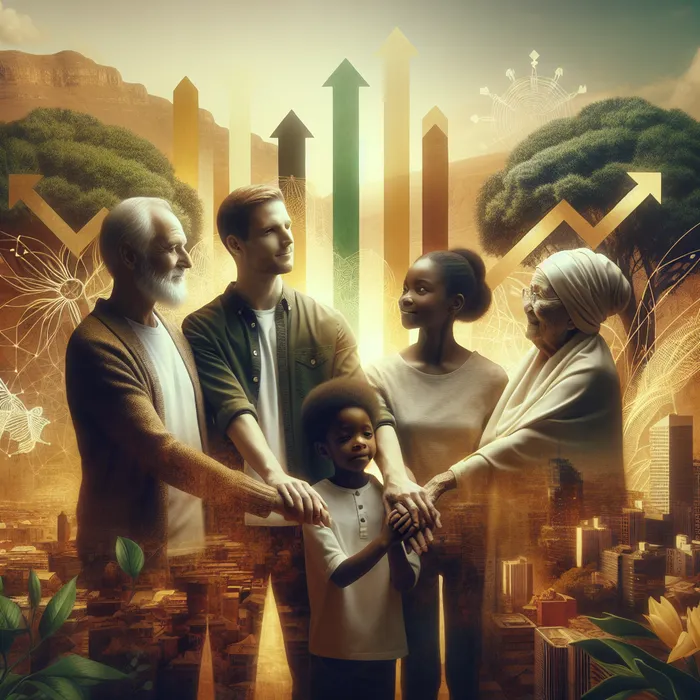The National Dialogue: Solidarity not just a Moral Idea, it's an Economic Necessity for South Africa

South Africa faces a critical juncture as economic sluggishness, youth unemployment, and stark inequality threaten the nation's future. In the midst of a National Dialogue, the call for solidarity emerges as a vital strategy to foster inclusivity and growth.
Image: IOL / Ron AI
In South Africa today, the cracks are showing. Our economy remains stubbornly sluggish. Unemployment, particularly among the youth, is at crisis levels. Inequality is among the worst in the world. Many feel excluded, unheard and left behind. Amid this, the country is engaged in a National Dialogue to chart a new way forward. One word should sit at the centre of that conversation: solidarity.
Solidarity is often spoken of as a moral or emotional value, a call to unity, empathy and compassion. While it is all of those things, it is also something else: a hard-nosed economic necessity. If we are serious about building a thriving and inclusive South African economy, then we must place solidarity at the heart of our growth strategy.
Why solidarity matters for the economy
A society that is deeply divided cannot grow sustainably. Investors are wary of instability. Businesses cannot thrive in an atmosphere of protest, insecurity and fractured trust. Workers cannot be productive if they are demoralised or excluded. And young people cannot innovate if they are shut out of education and employment.
Social cohesion, the outcome of solidarity in action, is not a “nice-to-have.” It is an essential input into economic stability and performance. Countries that grow in a healthy, sustained way are those that invest in their people, share the gains of growth and keep inequality in check.
The price of division
South Africa knows too well the cost of a divided society. We see it in service delivery protests, violent crime, polarised politics and a declining sense of national unity. An economy that continues to serve only the elite while the majority are left behind is not only unjust, it is unsustainable.
If inequality and unemployment continues to rise and social fractures deepen, it is not a question of if we will face unrest, but when. We cannot build an economy for the future if we are constantly putting out the fires of the present.
Solidarity in action
So what does solidarity look like in practice?
It starts with shared responsibility. Those who have the means, high-net-worth individuals, successful businesses and multinationals, must be willing to contribute more to the common good. That means paying fair taxes. It means investing in South African communities, not just in stock portfolios. It means supporting local supply chains, job creation and inclusive development.
Solidarity also means participation. All South Africans, whether rich or poor, urban or rural, must see themselves as co-creators of the country’s future. A culture of community service, volunteering and giving back is not just good citizenship, it’s a national investment strategy.
Government, too, must uphold its part. Public institutions must be responsive, ethical and effective. Corruption and inefficiency erode trust and undermine solidarity. If people are to pull together, they need to believe that their efforts will not be wasted or abused.
A call for temporary sacrifices
At this moment in our history, some sacrifices may be required, not forever, but for long enough to reset the trajectory. Temporary financial contributions from those who can afford it and tax justice that ensures the super-rich and powerful corporations contribute their fair share. Structural reforms that level the playing field.
These are not punitive measures., they are acts of collective self-preservation. If we fail to act now, the cost down the line, socially and economically, will be far higher.
Building together
Solidarity should not be viewed as sentimentality. It is strategy. It is the glue that binds inclusive economies together. It is what enables a country to move from survival to shared success.
The National Dialogue offers a rare opportunity for South Africans to come together and rewrite our future. Let us not waste it. Let us understand that if we are to build an economy that works for everyone, we must start by committing to each other.
Because solidarity is not just the right thing to do, it is the smart thing to do.
* Daryl Swanepoel is the Chief Executive of the Inclusive Society Institute.
** The views expressed do not necessarily reflect the views of IOL or Independent Media.
Related Topics: